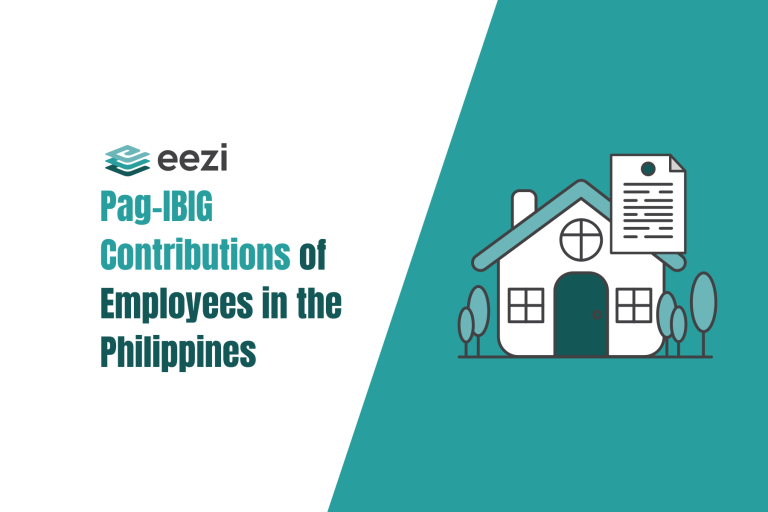What is the Telecommuting Act in the Philippines? Learn more about the law and its impact on your workplace.

What is telecommuting?
Telecommuting, also known as teleworking, is a work arrangement that enables employees to work from a location outside of the traditional office, often from their homes.
It relies on telecommunication and digital technology to allow employees to perform their job duties effectively and efficiently from a remote location with the same compensable work hours as when working from an office.
Since employment is the country’s primary social economic force, this approach has gained significant prominence, particularly with advancements in digital communication tools that offer greater flexibility in work arrangements.
Overall, they result in a potential reduction in commuting time and costs.
What is the Telecommuting Act in the Philippines?
The Telecommuting Act, officially known as Republic Act No. 11165 or the “Work From Home” Law, was introduced to legally establish telecommuting as an approved work arrangement for private employees in the Philippines.
This act defines telecommuting as “work from an alternative workplace using telecommunications and/or computer technologies.”
It provides employees with the flexibility to perform their job duties outside the traditional office, promoting a better work-life balance in adherence to minimum labor standards.
The act includes provisions to regulate telecommuting arrangements as an alternative workplace option and facilitate their implementation across various industries, making it a significant piece of legislation aimed at modernizing the country’s labor practices, particularly in the private sector.
How does the telecommuting act impact the workplace?
The Telecommuting Act prioritizes equitable treatment for employees opting to work from home, with the telecommuting agreement being a voluntary arrangement between the employer and employee.
Employers are not mandated to implement telecommuting if it does not suit their company rules and business needs.
Guaranteed rights for telecommuting employees
- Receive a compensation and benefits package not lower than what is provided by applicable and relevant laws, including overtime pay and night shift differential and other similar monetary benefits or collective bargaining agreements.
- Have the same access and be entitled to rest periods or days, breaks, and regular and special non-working holidays with comparable workers.
- Have an equivalent workload and performance standards as their office-based and private sector counterparts.
- Access the same training and career development opportunities and undergo similar assessment processes as on-site employees.
- Receive proper or appropriate training on the use of devices, equipment, and computer technologies relevant to telecommuting.
- Enjoy the same treatment and rights as on-site employees or comparable employees working in offices, including communication with workers’ representatives.
Data protection is another critical aspect of the Telecommuting Act. As employees use the internet for remote work, the setup needs stronger measures to safeguard sensitive data and restrict access of confidential and proprietary information to primarily responsible and authorized personnel only, as indicated in the Data Privacy Act.
Furthermore, the act encompasses provisions for the Telecommuting Program, Administration of the Telecommuting Program and Agreement, and the establishment of Implementing Rules and Regulations (IRR) to ensure effective implementation and compliance.
Essentially, the Telecommuting Act aims to foster a productive and secure telecommuting environment for both employers and employees.
Telecommuting program (RA 11165) and its implementing rules and regulations
Section 4 of Republic Act No. 11165 establishes the Telecommuting Program. This allows employees to work remotely outside of the traditional office premises or at an alternative workplace
Moreover, the Department of Labor and Employment issued a set of Implementing Rules and Regulations to elaborate on each item of the program.
Under the law, the Telecommuting Program or telecommuting work arrangement is voluntary. Moreover, its implementation is subject to mutual agreement between the employer and the employee under applicable grievance mechanism(s).
In addition to the guaranteed rights, the applicable laws and rules also emphasize ensuring transparency and understanding.
Moreover, the employer must communicate all the terms and conditions of the telecommuting program. In addition, the employer must also outline the responsibilities of the telecommuting employee through relevant written information or such terms.

DOLE guidelines on WFH or telecommuting work arrangement
When formulating a telecommuting agreement or an alternative workplace, certain key guidelines and appropriate measures must be taken into account:
- Eligibility: Clearly outline the criteria and same appraisal policies covering an employee’s eligibility for the telecommuting arrangement.
- Code of Conduct and Performance Evaluation: Define expected behavior and establish a fair evaluation process for telecommuting employees, such as profiling research work prior to assignment.
- Suitable Alternative Workplace(s): Specify the alternative workplace(s) and other acceptable locations from which employees can work remotely.
- Usage and Price of Necessary Equipment: Address the use and cost of essential equipment required for telecommuting.
- Work Days and Hours: Establish a schedule for telecommuting days and working hours that accommodate the same or equivalent workload as the regular office-based arrangement.
- Terms of Employment, Pay, and Benefits: Ensure that the telecommuting agreement covers compensation, benefits, and any provisions specific to the telecommuting employee’s remote work.
- Non-Reduction of Benefits: This guarantee ensures that the benefits of each telecommuting employee are not reduced compared to their office-based counterparts.
Employers can create effective telecommuting agreements that promote productivity, work-life balance, and employee satisfaction by adhering to such terms and comprehensive guidelines.
Benefits of telecommuting
Telecommuting has revolutionized both the workplace and work in general, prompting changes in employment agreements with new and alternative avenues.
- Minimized Operating Costs
- Reduced Employee Expenses
- Lower Stress Levels
- More Flexibility
- Better Work-Life Balance
- Better Employee Experience
- Lower Turnover Rates
Tips for implementing telecommuting policies
Implementing telecommuting policies effectively can significantly enhance employee satisfaction and productivity. Here are some practical tips to help you develop and implement these policies successfully:
- Determine eligibility criteria: Specify which job positions qualify for remote work.
- Define the flexible work arrangements: Clarify the acceptable timing arrangements for remote employees, whether fixed or flexible.
- Establish performance standards: Set clear performance objectives and productivity targets for each remote role, outlining expectations regarding workspace conditions and connectivity.
- Establish reporting structure: Assign managers to supervise remote teams and establish performance benchmarks. Ensure remote workers are aware of their reporting lines and responsibilities.
- Communication guidelines: Define expectations for remote workers regarding check-in times and reporting mechanisms for tracking productivity, such as weekly progress reports.
- Identify necessary tools: Inform employees about the productivity, communication, and collaboration tools they are required to use, along with any usage restrictions.
- Cybersecurity protocols: Collaborate with the IT department to outline cybersecurity measures that remote employees need to follow.
- Equipment policies: Specify rules governing the use of company-provided equipment.
- Address policy violations: Clearly articulate consequences for misusing telecommuting privileges.
Frequently asked questions
What is the Telecommuting Act?
It legally establishes the telecommuting act as an approved work arrangement for private employees in the Philippines.
What should a telecommuting policy include?
Purpose, eligibility, work hours, communication protocols, approval process, and compliance measures.
How do I create an effective telecommuting agreement?
Outline job duties, work schedule, equipment requirements, data security measures, and communication expectations.
What legal requirements should I consider for telecommuting policies?
Ensure compliance with local labor laws and data protection regulations.
How can I support telecommuting employees?
Provide necessary tools, offer technical support, promote a healthy work environment, and ensure access to training and career development.
Telecommuting the eezi way
Make telecommuting as easy and as comfortable as possible with eezi‘s HR and Payroll suite. Learn more about how it can help make telecommuting secure and more convenient by booking a demo or signing up for a free trial.


![Provincial Rate Minimum Wage in Visayas: How Much Do People Earn Per Region [2024]](https://www.eezi.com/wp-content/uploads/2023/05/Minimum-Wage-in-Visayas-How-Much-Do-People-Earn-Per-Region-768x512.webp)
